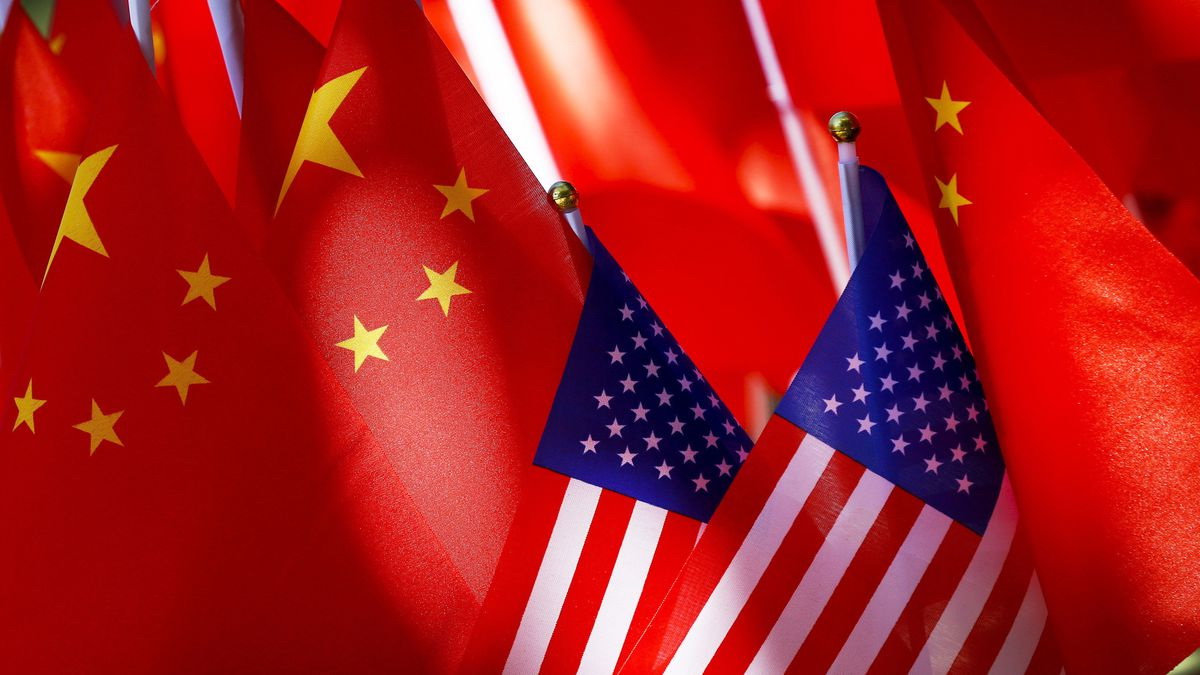
Xi says China, US together can do the good mutually and for the world
Xi warns China, US confrontation will definitely be disastrous for both countries and the world
First contact is embedded in exchange of Lunar New Year greetings between two presidents
BEIJING – Chinese President Xi Jinping on Thursday morning took a phone call from U.S. President Joseph R. Biden on the eve of the Lunar New Year.
The two presidents wished each other good fortune in the Year of the Ox, and had an in-depth exchange of views on China-U.S. relations and major international and regional issues.
Biden conveyed festive greetings to the Chinese people and wished the Chinese people a happy and prosperous New Year. Xi congratulated Biden once again on taking office as U.S. president, and wished the people of China and the United States a happy and auspicious Year of the Ox.

Xi pointed out that the restoration and growth of China-U.S. relations has been the most important development in international relations over the past half century and more.
Despite various twists and difficulties, he added, the relationship has on the whole kept moving forward and delivered enormous benefits to the Chinese and American peoples and contributed to global peace, stability and prosperity.
Xi stressed that China and the United States both gain from cooperation and lose from confrontation; cooperation is the only right choice for both sides. When China and the United States work together, they can accomplish a great deal for the good of both countries and the world at large; confrontation between the two countries, however, will definitely be disastrous for both countries and the world, he added.
Emphasizing that the China-U.S. relationship is currently at an important juncture, Xi said it is the common desire of both peoples and the wider international community to see the sound and stable development of China-U.S. relations.
“You have said that America can be defined in one word: Possibilities. We hope the possibilities will now point toward an improvement of China-U.S. relations,” Xi said to Biden.
The two countries, he suggested, should make joint efforts in the same direction, follow the spirit of no conflict, no confrontation, mutual respect and win-win cooperation, focus on cooperation, manage their differences, and work for the sound and stable development of China-U.S. relations.
In this way, they can deliver more tangible benefits to people in both countries, and make their due contribution to fighting the COVID-19 pandemic, promoting world economic recovery and maintaining regional peace and stability, Xi added.
Xi emphasized that while the two sides may differ on some issues, it is crucial to show mutual respect, treat each other as equals, and properly manage and handle the differences in a constructive fashion.
The foreign affairs departments of the two countries may have in-depth communications on wide-ranging matters in the bilateral relationship and major international and regional issues, and the economic, financial, law enforcement and military authorities of the two countries may also have more contacts, Xi said.
The two sides should re-establish the various dialogue mechanisms, read each other’s policy intentions accurately, and avoid misunderstanding and miscalculation, he said, adding that it is important to manage differences where they exist and jointly pursue cooperation where it is desirable to do so.
The Taiwan question and issues relating to Hong Kong, Xinjiang, etc. are China’s internal affairs and concern China’s sovereignty and territorial integrity, and the U.S. side should respect China’s core interests and act prudently, Xi stressed.
Xi emphasized that confronting a highly uncertain international situation, China and the United States shoulder special international responsibilities and obligations as permanent members of the United Nations Security Council.
The two sides, he added, should act to conform to the trend of the world, jointly safeguard peace and stability in the Asia-Pacific region, and make historic contributions to promoting world peace and development.
Biden, for his part, noted that China has a long history and a great culture and the Chinese people are a great people.
The United States and China must avoid conflict and they may work together on climate change and many other issues, he added.
The U.S. side, he said, is prepared to have candid and constructive dialogue with the Chinese side in the spirit of mutual respect and to improve mutual understanding and avoid miscommunication and miscalculation.
The two presidents agreed that their phone conversation today will send a positive signal to the world and the two sides will maintain close communication on China-U.S. relations and issues of mutual interest.
Xi-Biden telephone call rekindles renewed hopes for global development
Chinese President Xi Jinping and his U.S. counterpart, Joe Biden, held their first telephone conversation on Thursday since the latter entered the White House in late January, sending a series of positive signals to the world community.
The first one is embedded in the exchange of Lunar New Year greetings between the two presidents.
The Spring Festival is a very important holiday for the Chinese. The telephone conversation between the two heads of state on the eve of the Lunar New Year marks a new starting point for direct communication, symbolizes goodwill, and conforms to the expectations of the Chinese and Americans, as well as those of the wider global community.
The second positive message is a shared will to maintain communication between the two sides. In their dialogue, the two leaders agreed to maintain close communication on China-U.S. relations and issues of mutual interest.
Biden said Washington is prepared to have candid and constructive dialogue with China in the spirit of mutual respect and to improve mutual understanding and avoid miscommunication and miscalculation. Those agreements bear positive significance for Beijing and Washington to dispel misunderstandings and engage in normal dialogue.

Over the past few years, the China-U.S. relationship has encountered the most serious difficulties since the establishment of bilateral diplomatic ties. Some Washington politicians, who remain stuck in the Cold-War mentality, saw in China a grave threat to the United States. They rolled out a raft of policies that meddled in China’s internal affairs and damaged the interests of the Chinese people. They even tried to decouple the two countries and advocate for a new Cold War.
With the inauguration of the Biden administration, returning the China-U.S. relationship to the right track has become a common aspiration of the international community.
When viewing the relations between the world’s top two economies, one should refrain from having their eyes glued to where the two countries disagree and look instead to the bigger picture.
It is quite normal for Beijing and Washington to disagree with each other on some issues. In the face of those disagreements, the two sides need to respect each other, treat each other as equals, and manage their differences in a constructive fashion. One way to manage those differences is by re-establishing various dialogue mechanisms in order to accurately understand each other’s policy intentions.
The third message lies in the recognition of the spirit of cooperation. History and reality clearly show that China and the United States both gain from cooperation and lose from confrontation; dialogue is always better than friction.
Over the past more than four decades since the two countries established their diplomatic relations, bilateral ties have grown into one of the most deeply interwoven relationships in the world that includes broad areas of cooperation and extensive areas of common interest.
Cooperation is in line with the fundamental interests of both sides and represents a popular trend that cannot be reversed.
On the global stage, cooperation between China and the United States can accomplish a great deal. The two countries have together fought terrorism, addressed the 2008 global financial crisis, combatted the Ebola epidemic, and collaborated on the Paris climate accord.
As the world is undergoing a transformation unseen in a century, which is compounded by a raging COVID-19 pandemic, China and the United States must shoulder their responsibilities as major countries to jointly tackle global challenges. They ought to maintain stability in the Asia-Pacific region and promote world peace and development.
Currently, the world’s arguably most important bilateral relationship is standing at a new and critical juncture, and head-of-state diplomacy can play an irreplaceable guiding role.
Looking to the future, the two countries should make joint efforts in the same direction, follow the spirit of no conflict, no confrontation, mutual respect and win-win cooperation, focus on cooperation, manage their differences, and work for the sound and stable development of China-U.S. relations.







